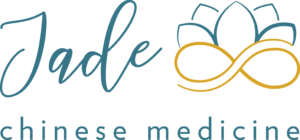In my years of practice one of the major things I’ve noticed is how busy many people are and how normal it becomes – until of course, they turn up in in my clinic stressed and anxious. Much of what we call ‘anxiety’ is actually stress – the constant go go go of everyday life for many people.
While some of that business is unavoidable (especially at this time of year!) there are many everyday activities you can engage into your normal daily life to relieve your stress and lift your general outlook.
I thought I’d make a list here with some of my top recommendations – let me know how you go!
1. Move it (Move it!)
Exercise is well known as the best way to relieve stress. A yoga or tai chi class, walk after work, trip to the park with your dog, kids, or your feet is a sure fire winner to make you feel better at the end of a long hard day.
I often recommend tai chi or yoga (or martial arts, or dance) because they all have great studies (as well as thousands of years practice, ahem) of integrating a great body mind focus manifested as physical activity – and there’s no cheating. Lose focus = fall over!
2. Get Mindful
This may mean meditation, it may not – or probably not the way you think of meditation. I like to point out when people tell me they can’t meditate that the ‘sit still and breathe’ kind of meditation is actually considered the most advanced practice in Buddhism. What they mean as meditation is actually being present and aware, of where you are in that moment. It may mean paying attention to doing the washing up, or cooking a meal, or fixing your car. If you are able to completely focus on that one thing and be present – congratulations, you have begun to meditate. Practicing in that format is a great way of relieving stress – and it will be easier to start to focus generally if you start being aware of it.
Paying attention to the litany you say to yourself can make a huge difference. One of my (Chinese) teachers in my undergrad in Acupuncture used to say something which I’ve never forgotten – that westerners say ‘stressful’ when they mean ‘busy’. These two things aren’t the same – get clear on which one is actually happening.
3. Get out in the green
A walk in the green somewhere (your park will do just fine) is also a fantastic (equally evidence based) way to relieve your anxiety – if you can, I recommend taking your shoes off and feeling the grass underneath your toes – get grounded and relax. Don’t look at your phone (in fact don’t take it unless you have to), be present and mindful of whats going on around you. Read more here if you like
4. Get Touchy Feely
I think most of you have figured this out! Physical touch releases all kinds of happy stress relieving hormones, and gets you centred and settled again. Both massage and Acupuncture have lots of evidence for the benefits of stress relief, anxiety and depression – sedating Sympathetic Nervous System response (SNS), reducing cortisol, and increasing dopamine and serotonin (and reducing blood pressure too). In fact Acupuncture has been proven equal with CBT in several studies. You can read more on my pages for Anxiety, PTSD, Stress and Depression if you want more detail on this.
Touch doesn’t just mean with a professional – a neck or foot rub with your partner or kids can do wonders, and a furry friend will do just as well.
5. Pump up the jams
Music is a great way to lift and change your mood, and is actually really well studied for its effects – reducing pain, lifting mood, and relieving stress.
While lots of the studies are for classical music, I feel honestly if its music you’ll enjoy – you’ll get benefit – listening to music on your way to and from work is a great way of getting into a good mood!
Bonus points for singing along – yes really, singing has benefits on settling the heart and mind too! (but maybe not for the people listening….. )
6. Be grateful
A fabulous client just introduced me to this: http://1000awesomethings.com/the-top-1000/
And its awesome! Make your own – as funny or serious as you like!
7. Breathe
Simple and easily accessible – focusing on your breath is the quickest way to dissolve your tension and stress in any situation. Deep breathing (longer exhalation than inhalation) will induce your parasympathetic nervous system (PNS) response which is the rest, digest and heal capacity of the body.
Take action!
Now you have my best tips for reducing stress and anxiety – they arent nothin’ though, without the next step of doing them.
Many of these tips have the capacity to affect both short term and long term states of stress and anxiety – results are cumulative, which is to say they increase over time. Your best bet is to integrate numerous facets of these (and other) lifestyle tips into you everyday life and consciously increase them when you know stressful and/ or busy times are coming up, so they can assist you more effectively.
While nothing can completely remove stress and anxiety from our lives (and I’m not sure we’d really want to anyway), using some great self care strategies (with great evidence bases!) can really assist you with feeling less out of control and reducing the impact of stress and anxiety on our wellbeing, and having an easier time in the busy times – life’s just too short to be stressed all the time!



